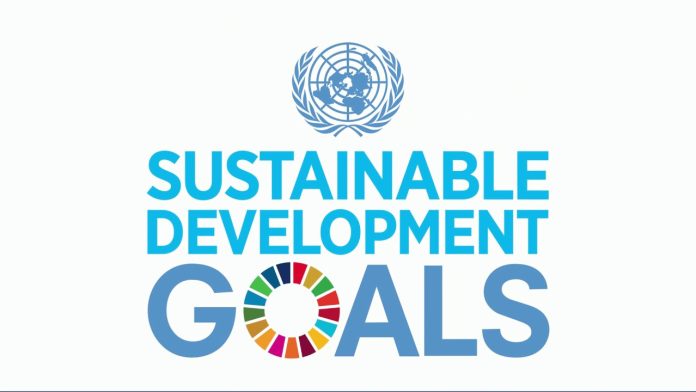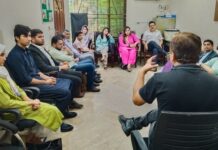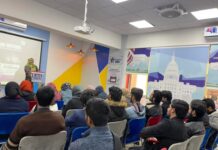The Sustainable Development Goals (SDGs), also known as the Global Goals, are a universal call to action to end poverty, protect the planet and ensure that all people enjoy peace and prosperity. These 17 Goals have been structured on the Millennium Development Goals (MDGs), in concomitant with new areas such as Quality Education, Peace, Justice and Strong Institutions, Gender Equality, climate change, among other priorities. They provide clear guidelines and targets for all countries to embrace in accordance with their own priorities and the environmental challenges of the world at large. They try to identify the root causes of poverty and unite us together to make a constructive change for both people and planet. Poverty eradication is at the heart of the 2030 Agenda, and so is the commitment to leave no-one behind. It endeavors to deal with the threat of climate change and as to how we could manage our fragile natural resources, achieve gender equality, better health, eradicate poverty, and foster peace, reduce inequalities and help economies prosper. In short, this is the greatest chance we have to improve life for future generations.
Pakistan stands committed and has displayed remarkable efforts to the 2030 Agenda for Sustainable Development as it was one of the first countries to endorse it globally in 2015. The Parliament of Pakistan has also unanimously approved the Sustainable Development Goals (SDGs) as the National Development Agenda. The 18th constitutional amendment has devolved several public functions including the provision of social services from the federal to the provincial governments.
In Ministry of Planning, Development and Reform a committed section has been constituted to coordinate and monitor SDGs progress. UNDP is supporting the Ministry of Planning, Development and Reform, for localizing the SDGs by applying UNDG MAPS approach focusing four project outputs: (1) Mainstreaming SDGs in Plans, Policies and Resource Allocation aligned to 2030 Agenda, (2) SDGs monitoring, reporting and evaluation capacities strengthened, (3) Financing flows increasingly aligned with 2030 Agenda, (4) Innovative approaches applied to accelerate progress on priority SDGs. Collectively, all partners are supporting each other in the communication of the new agenda, strengthening partnerships for implementation, and filling in the gaps in available data for monitoring and review.
On 30 May 2019, Pakistan’s Ministry of Planning, Development and Reform hosted a national conference to share key findings and highlights from Pakistan’s first Voluntary National Review (VNR) of SDG implementation. Pakistan’s Parliamentary Secretary Kanwal Shauzab, chaired the meeting and highlighted Pakistan’s SDG Support Unit, which she said has enhanced the country’s preparedness to implement the 2030 Agenda for Sustainable Development.
The Government’s VNR highlights its passion to eliminate poverty. In order to achieve the goal of “no poverty” the Government of Pakistan has established an ‘Ehsas’ (Compassion) program under which the Government has announced plans to double the amount for social protection in its next budget. In addition, Pakistan is updating its National Socioeconomic Registry to more effectively target the poorest people and ensure that no one is left behind, in line with SDG 10 (reduced inequalities).
To improve such coordination among government and other stakeholders, the Federal SDGs Support Unit has orchestrated conferences and seminars at national and provincial level. The Government plans to scale up SDG implementation through a multi-stakeholder approach based on increasing transparency, enhancing finance and technology.
The key messages of the report, submitted by the Government of Pakistan to the UN’s VNR database, focus on: the country’s political commitment, institutional readiness and partnerships; plans to alleviate poverty; commitment to eliminating hunger and improving health; action on environmental protection and climate change; and monitoring and evaluation. To address stunting and malnutrition, Pakistan is increasing its allocation of resources and focusing on eliminating hunger. Pakistan also launched a universal health coverage (UHC) initiative, the ‘Sehat Sahulat Program,’ to provide health insurance coverage for those in need.
Social worker Dr. Azra Talat Sayeed who is a member of the APWLD—an organization working for sustainable development goals—and also represented Pakistan in Asia Pacific Forum on Sustainable Development as well as HLPF. On this issue, she is of the view that goals on sustainable development cannot be achieved without making the women strong and financially stronger. She observes that gender discrimination is found all over the world against women. Pakistan is counted among four countries where 4.9 million women aged from 18 to 49 are simultaneously deprived of four sustainable development goals. It includes marriage before the age of 18, obstacle in education, health and unemployment for which women have to face untold obstacles. She observes that despite living in the same country there is an explicit gulf between the income of men and women. In the opinion of Dr. Azra, the most backward are the Sindhi, Seraiki and Pashtoon women, whereas other indicators show that poor women are the same everywhere. In the country, 74% of women are those who have less than six years of education. Pashtoon women, in this respect, are more backward. Out of the poorest families in Sindh, 40% are suffering from mal-nutrition. Whereas this ratio at national level is 13.2. Owing to destitution they are compelled to fall into drudgery and have to face severe obstructions which include gender discrimination, meagre opportunity and low wages. For these reasons, very few are able to get non-precarious employment.
Dr. Azra, on the whole, explained about goals of sustainable development and urged the incumbent government to take social organizations into confidence so that goals of Sustainable Development Goals-2030 could be achieved. Because it is being warned that due to climate change natural disasters would affect the whole world. Then, it won’t just be a problem of clean water or elimination of poverty, it would be our problem too. Meaning thereby, all goals stipulated in sustainable development, will surely be our goals too, therefore, at any cost, these are to be achieved and in this connection social organizations can play a vital role. If we want to see a clean and green and polio free Pakistan and want to dispense masses with basic amenities, we need to understand the importance of social organizations. Our state is under obligation to make possible the goals of Sustainable Development Goals-2030 and by giving relief to social organizations it has a chance to let the country be counted amongst developed countries.
On this account, Ume Laila Azhar, the chairperson Home Net, told that in the year 2000 when Millennium Development Goals were agreed, then for the elimination of poverty, rallies were held at world level owing to which, merely in a decade, elimination of half of poverty was made possible which is a big success. More than 2 billion individuals got better resources of clean drinking water, principles were formulated to eradicate tuberculosis and malaria and hunger was brought under control to a great extent. In spite of these achievements, only a few of the children were able to attend school even after fifteen years. Food is available to the few, only a few have the resources of water, sanitation and cleanliness. This Is not acceptable and we need to change it. It is for this change that international community is joining hands for the achievement of newly-set global goals. Under these goals, by 2030 poverty has to be eliminated. To save the world and eradicate poverty, ensuring the end of systemic barriers is essential. At this time, Pakistan is facing the same developmental challenges as before. 1.2 million children still don’t attend the school. Almost half of youth is suffering from mal-nutrition. Under United Nation, in Pakistan a Development Program (UNDP) was launched in which a Global Human Development report was submitted. In the report it was urged to continue the efforts to mitigate the lack of flexibility that hinders the speed of projects. To create flexibility in Pakistani government, for welfare of people and for the comprehensive construction of economy and society, this report can be of great assistance. According to the report, out of 187 countries, Pakistan is still at number 146 on Human Development Index whereas Bangladesh and India have developed to 142 and 135 respectively. In the last two decades, the number of countries registered for reforms in human development but the fact is that in the sphere of human development success cannot be measured by construction of projects and by the capacity to cope with the crisis.
Pakistan is determined to achieve the sustainable development goals and in this connection, UK has expressed its intentions to work with Pakistan to eliminate poverty, to bring betterment in education and health sectors, and for economic progress. In spite of all endeavors, Pakistan is still far behind in achieving desired goals but in some areas progress has been seen including access to better resources of water and improving health care.
Moreover, we have to look for ways as to how we could rectify the shortcomings in MDGs. Many of the causes of poverty still lay concealed. We are to make sure that in the next planning these could be minimized so that social and economic progress could begin. To achieve the desired result, enforcement of rule of law, end of gender discrimination, due share of women in inheritance and participation of social organization in these goals are essential.




